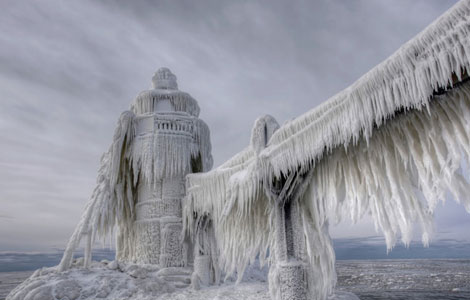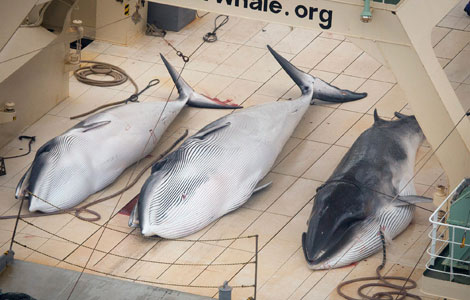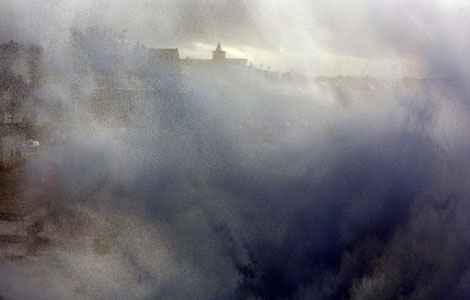

BEIJING - Everyone is entitled to a dream. But Japanese Prime Minister Shinzo Abe seems to be having a dangerous one that may drag Japan toward a nationalist dead end and risk jeopardizing regional stability.
In a New Year message, Abe reaffirmed his resolve to revise the country's pacifist constitution written after Japan's defeat in WWII. By revising the war-renouncing constitution, Abe aims to lift the ban on the right to exercise collective self-defense, making it possible for Japan to wage war.
It's good to have dreams. But Abe's dream only triggered deep fears among neighboring countries over the rebirth of fascism in Japan, given the prime minister's reckless pursuit of military power and his brand-name blindness to the country's wartime atrocities.
By chasing his dream, Abe is putting Japan's security at greater risk, as it would certainly raise tensions and nudge the region a step closer to conflict. Meanwhile, the prime minister's dream-chasing comes at the cost of the benefits of Japanese people, as it will distract attention from the vital task of reviving Japan's economy.
Abe, who has long vowed to revise the constitution, is taking steps to make his dream come true.
In December, Abe's cabinet approved a critical defense policy package comprising new defense program guidelines, a five-year defense buildup plan and the national security strategy.
In the security strategy, Japan vowed to seek more "proactive" roles for its military forces abroad and to set new guidelines on arms exports, signaling a major shift from its previous restrictive policy.
A Japanese media outlet commented that Japan has made a historic step in turning itself into a great military power.
Despite Japan's domestic economic woes, a considerable amount of government spending has been or will be invested in building up military strength instead of beating a 15-year-old deflation.
In an exclusive interview with The Wall Street Journal on October 25, Abe even said he envisioned a resurgent Japan, which will take a more assertive leadership role in Asia to counter China's power.
It may not be so big a surprise as Abe's diplomatic strategy has always been essentially focused on countering China by promoting the so-called "value-oriented diplomacy" since he took office.
On December 26 last year, Abe sent shock waves around the world by visiting the controversial Yasukuni Shrine that honors Japan's war dead, including 14 class-A war criminals of WWII.
Abe's denial of the wartime atrocities Japan had committed and his dangerous constitutional obsession gave the international community all the more reasons to worry as Japan, under his leadership, may become a saboteur of regional stability.







